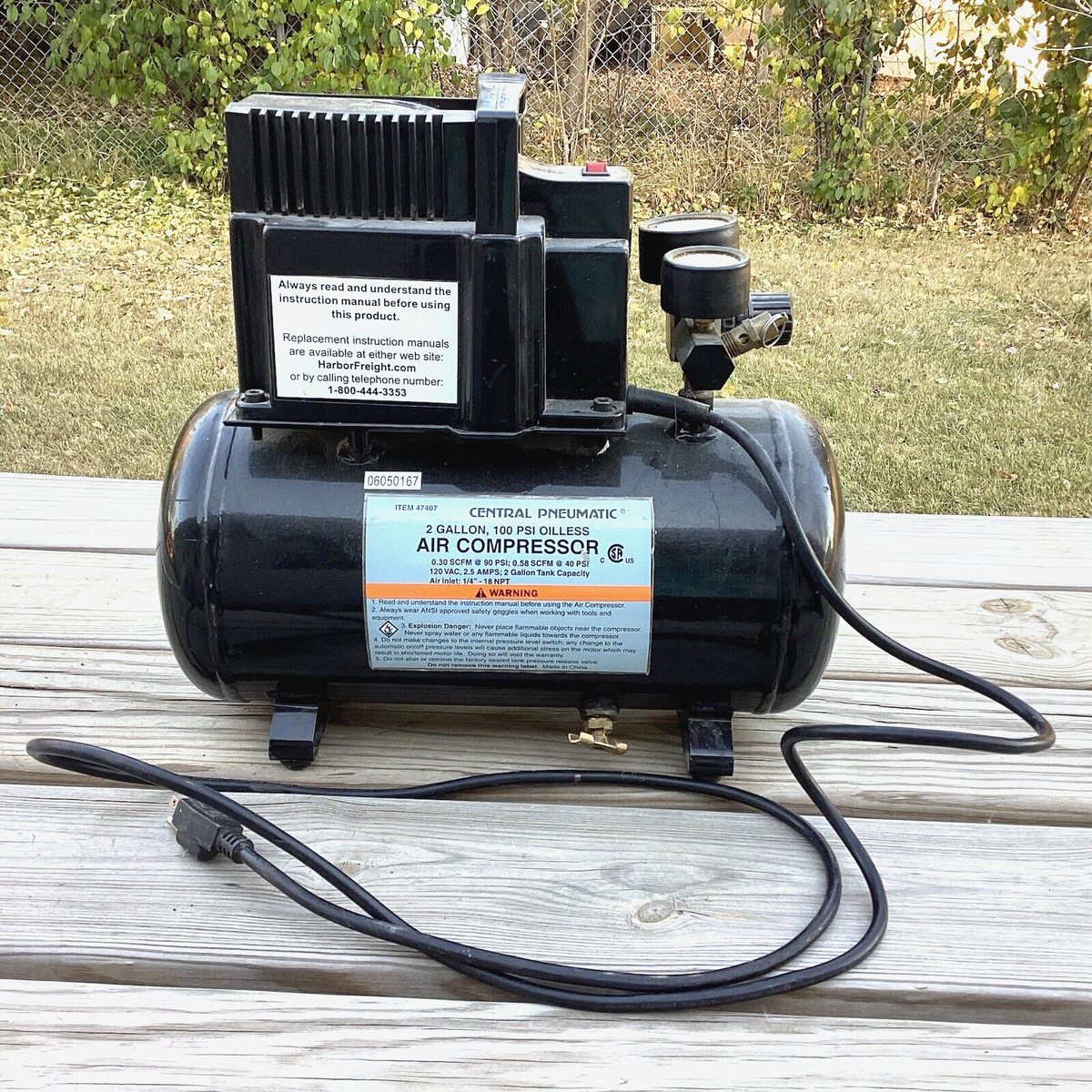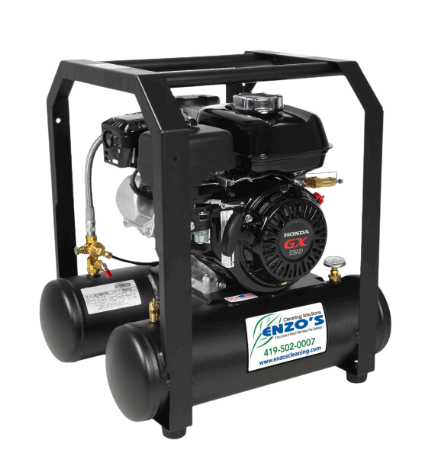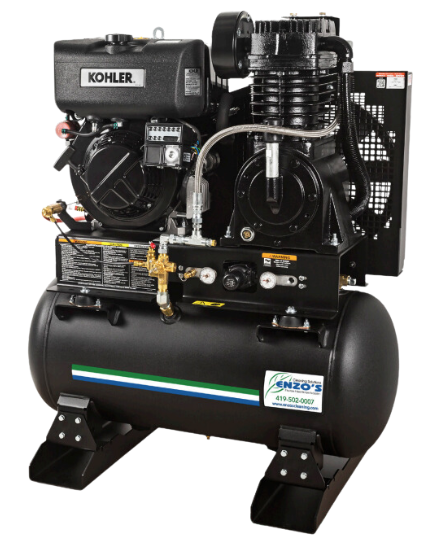Are you puzzled by the jumble of numbers and terms in air compressor specs? You’re not alone.
Understanding these details can feel like deciphering a secret code. However, getting a grip on these specifications is crucial for making the right choice for your projects. Whether you’re a DIY enthusiast or a seasoned professional, knowing exactly what these specs mean ensures you pick the perfect tool for the job.
Imagine the ease and confidence you’ll feel when you can glance at those specs and instantly know which compressor suits your needs. Dive into this guide, and unlock the secrets of air compressor specs to make informed decisions effortlessly. Your next project is about to get a whole lot smoother!

Credit: www.ebay.com
Types Of Air Compressors
Reciprocating compressors use pistons to compress air. They are common in small shops. These compressors are easy to maintain. They have a simple design. They can be noisy during use. Best for low volume tasks.
Rotary screw compressors use rotating screws to compress air. They are quieter than reciprocating types. Ideal for continuous use. They are often found in factories. These compressors need less maintenance. Great for large jobs.
Centrifugal compressors use a rotating disk. They compress air at high speed. Suitable for large-scale industrial needs. These compressors have high efficiency. They are costly but reliable. Used in big factories.

Credit: enzoscleaning.com
Key Specifications To Consider
Air compressors have CFM and SCFM ratings. CFM stands for Cubic Feet per Minute. It measures the airflow. SCFM stands for Standard Cubic Feet per Minute. It is used under standard conditions. Higher CFM and SCFM mean more powerful compressors. They can handle larger tasks. Always check these ratings before buying.
PSI stands for Pounds per Square Inch. It measures the pressure. Higher PSI means the compressor can do harder jobs. PSI levels are important for tools that need high pressure. Always choose the right PSI for your tasks.
Horsepower shows the engine power of the compressor. More horsepower means the compressor is stronger. It can run longer and handle bigger jobs. For home use, less horsepower is okay. For industrial work, more is needed.
Compressor Tank Size
The tank size of an air compressor is very important. It tells how long the compressor can work. A big tank holds more air. This means you can use tools longer. On the other hand, a small tank is light. It is easy to move around. It can be good for quick jobs.
Choose a tank size based on your needs. Think about your tasks. For small jobs, a small tank is okay. For big jobs, a large tank works better. Always check the specs on the compressor. It helps you pick the right one. The right size saves time and effort.
Duty Cycle And Its Impact
The duty cycletells how long an air compressor can run. It shows the work time compared to rest time. If the cycle is 50%, the compressor runs half the time. This helps it stay cool and last longer. Compressors with higher duty cycles can work more. They are used for bigger jobs.
A low duty cycle limits work. The compressor may need to rest often. It affects the performanceand job speed. High duty cycles allow more work. It runs longer without stopping. This means faster job completion. Choose the right cycle for your needs. Think about how long you need it to run.
Power Source Options
Electric compressorsare great for indoor use. They are quieter and cleaner. They need a power outlet to work. Good for homes and workshops.
Gas compressorsare ideal for outdoor tasks. They are powerful and portable. No need for a power outlet. Perfect for construction sites.
Think about where you will use the compressor. Indoors or outdoors? Choose electric for quiet and clean use. Opt for gas when power and mobility matter.
Noise Levels And Location
Decibel ratingsshow how loud an air compressor is. Lower numbers mean less noise. Air compressors can be loud. Some are as noisy as a hair dryer. Others are quieter, like a normal conversation. It’s important to know how loud your compressor is. High noise can hurt ears. Lower noise is better for small spaces.
Place air compressors away from bedrooms. Noisy compressors can disturb sleep. Consider putting it in a garage or basement. Keep it away from neighbors too. They might not like the noise. If a compressor is too loud, try using ear protection. Also, check the decibel rating before buying.
Maintenance And Longevity
Understanding air compressor specs ensures proper maintenance and enhances longevity. Pay attention to pressure ratings and power source details. Knowing these specs helps in selecting the right model and maintaining optimal performance.
Routine Checks
Regular routine checkskeep air compressors working well. Look for leaks and worn parts. Clean filters often. This helps to prevent dirt buildup. Check oil levels regularly. Low oil can damage the machine. Tighten loose bolts and screws. This stops parts from shaking loose. Inspect belts for wear. Replace them if they are cracked or loose. Make sure gauges show the right pressure. Wrong pressure can cause problems. Listen for strange noises. They might mean something is wrong.
Extending Lifespan
Proper care extends the lifespanof air compressors. Store them in dry places. Wet areas can cause rust. Use them in clean environments. Dust can harm the machine. Follow the user manual for best practices. Change oil as recommended. Use good quality oil. It helps the compressor run smoothly. Avoid overloading the machine. Too much pressure can damage it. Train users on proper handling. This reduces accidents and mistakes.
Common Misunderstandings
Many people find air compressor ratings confusing. Some ratings are not clearand can be misleading. One example is the horsepower rating. It often seems higher than the actual power. This can trick buyers. They think the compressor is stronger than it is. Another common issue is with PSI and CFM ratings. PSI means pressure and CFM means air flow. Both are important for different tasks. But, companies sometimes show these numbers in a tricky way. They make the product look better. This is why understanding these terms is crucial. It helps in making the right choice.
Air compressor ads use many fancy words. These words can be hard to understand. Words like “premium” or “high-performance” sound good. But, they often do not mean much. They are used to sell the product. Always check the actual specs. This helps to know what you are really buying. Remember, simple words are often better. They tell the real story of the product.

Credit: enzoscleaning.com
Frequently Asked Questions
How Do You Read An Air Compressor Specs?
To read air compressor specs, focus on PSI, CFM, and horsepower. PSI measures pressure capacity, CFM indicates airflow, and horsepower shows motor power. Understand tank size for storage capacity. These specs determine the compressor’s suitability for your tasks.
What Does 4.0 Cfm At 90 Psi Mean?
4. 0 CFM at 90 PSI indicates airflow capacity. It means the air compressor delivers 4 cubic feet per minute at 90 pounds per square inch. This measurement helps determine the compressor’s efficiency and suitability for specific tools.
What Does 2.6 Scfm At 90 Psi Mean?
2. 6 SCFM at 90 PSI indicates the air compressor’s output. It delivers 2. 6 Standard Cubic Feet per Minute at 90 Pounds per Square Inch. This measurement helps determine the compressor’s efficiency and suitability for specific tools.
What Does 150 Psi Mean On An Air Compressor?
150 PSI on an air compressor indicates the maximum pressure it can deliver. PSI stands for “pounds per square inch,” measuring pressure. Higher PSI means the compressor can power more demanding tools. Always ensure tools and hoses are compatible with the compressor’s PSI rating for safety.
Conclusion
Understanding air compressor specs is crucial. It helps in choosing the right model. Look at PSI, horsepower, and tank size. Consider your specific needs. Know the differences between types. Portable models suit small tasks. Stationary ones handle heavy-duty jobs. Analyze CFM ratings closely.
It impacts performance significantly. Don’t ignore noise levels. Quiet models are preferable in many settings. Check warranty details before purchase. A solid warranty offers peace of mind. Use this knowledge wisely. Make informed decisions. Choose an air compressor that fits your needs.
With these tips, you’re ready to buy confidently.
Hi I am Tamim Hasan, I am a normal person. I like to help people so I want to help you through the blog website. If anyone is benefiting through this blog website then you can help me by sharing comments.




